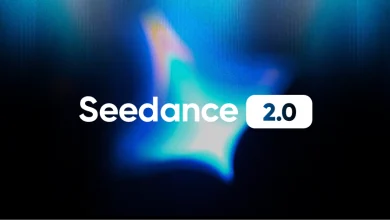
In the rapidly evolving investment landscape, you are witnessing a transformative shift driven by the rise of digital due diligence. As Al Sollami observes, artificial intelligence is reshaping traditional methods, making it essential to understand how these technological advancements are redefining investment risk assessment. No longer confined to manual processes, AI-powered tools now offer unprecedented precision and efficiency, enabling you to navigate complex financial terrains with greater confidence.
Understanding Digital Due Diligence in Today’s Investment Landscape
The Evolution of Due Diligence
Due diligence has evolved from traditional methods to more sophisticated digital strategies. Historically, it involved labor-intensive processes that often relied heavily on manual data collection and analysis. However, firms like Auctus Fund Management are embracing advanced digital tools that have transformed this process, enabling a more streamlined and accurate assessment of investment risks. Digital due diligence leverages advanced technologies to provide investors with deeper insights into potential investments, facilitating more informed decision-making.
Key Components of Digital Due Diligence
Digital due diligence encompasses several critical components that redefine how investment risks are assessed. First and foremost, it integrates artificial intelligence (AI) to automate data analysis, allowing for swift identification of patterns and red flags in large datasets. This shift not only enhances efficiency but also minimizes human error. Furthermore, digital due diligence includes big data analytics, which harnesses vast amounts of information from various sources to provide a comprehensive view of an investment’s potential risks and opportunities.
Impact on Investment Strategies
The incorporation of digital due diligence into investment strategies marks a significant shift in how investors approach risk assessment. By leveraging AI and data analytics, investors can now access real-time data, ensuring that their decisions are informed by the most current information available. This technological advancement enables investors to conduct more thorough evaluations, ultimately leading to better-aligned investment portfolios that match their risk tolerance and return expectations.
The Role of AI in Transforming Investment Risk Assessment
Enhanced Data Analysis and Processing
In the rapidly evolving landscape of investment risk assessment, artificial intelligence (AI) stands as a transformative force. The traditional methods, often characterized by manual processes and time-consuming data evaluations, are being redefined through AI’s ability to process vast amounts of data with remarkable speed and accuracy. AI algorithms can analyze both structured and unstructured data, uncovering patterns and insights that might elude even the most seasoned analysts.
Predictive Analytics and Risk Forecasting
AI-driven predictive analytics is revolutionizing how investment risks are forecasted. Machine learning models, a subset of AI, are particularly adept at recognizing trends and predicting future market movements. By learning from historical data, these models can project potential risks and opportunities, giving you a forward-looking perspective. This foresight is invaluable, enabling investors to make informed decisions and navigate volatile markets strategically.
Real-Time Monitoring and Adaptability
Another significant advantage of AI in investment risk assessment is its ability to offer real-time monitoring. Markets are dynamic, with conditions that can change rapidly, and AI technologies can continuously analyze data, providing up-to-the-minute insights. This real-time capability ensures that you can swiftly respond to emerging risks, maintaining a proactive stance rather than a reactive one. Additionally, AI systems are highly adaptable, learning and evolving as new data becomes available, which enhances their accuracy and reliability over time.
Challenges and Limitations of AI in Investment Risk Management
The Complexity of Data Interpretation
Artificial intelligence has revolutionized the way data is processed in investment risk management. However, interpreting the vast amounts of data generated remains a significant challenge. AI systems often struggle to distinguish between correlation and causation within complex datasets, leading to inaccurate risk assessments. Human oversight is crucial to ensure that the insights derived by these systems align with real-world scenarios, as algorithms might not always grasp the nuances of financial markets.
The Need for High-Quality Data
The efficiency of AI-driven risk management is heavily reliant on the quality of data it processes. Poor or incomplete data can lead to flawed analysis and decision-making. Data must be meticulously curated and free from bias to ensure accurate and unbiased results. Furthermore, the financial industry is constantly evolving, and AI systems must be continually updated with the latest information to maintain their effectiveness. Without a steady influx of accurate and current data, AI can misinterpret trends and increase investment risks rather than mitigate them.
Ethical and Regulatory Concerns
The integration of AI into investment risk management also raises ethical and regulatory concerns. The use of AI in financial services must comply with existing regulations, which vary by jurisdiction. The opacity of AI algorithms, often termed as the “black box” problem, presents a challenge in ensuring transparency and accountability. Regulators and financial institutions must work collaboratively to establish guidelines that protect investors while fostering innovation. Balancing these aspects is critical to harnessing AI’s potential without compromising ethical standards.
Final Thoughts
As you navigate the evolving landscape of investment, embracing the power of AI-driven digital due diligence becomes paramount. By leveraging sophisticated algorithms and vast datasets, Al Sollami notes that AI not only enhances accuracy but also streamlines the assessment process, offering more profound insights into potential risks. This technological advancement empowers you to make more informed, strategic decisions, reducing uncertainties and optimizing your investment outcomes.




